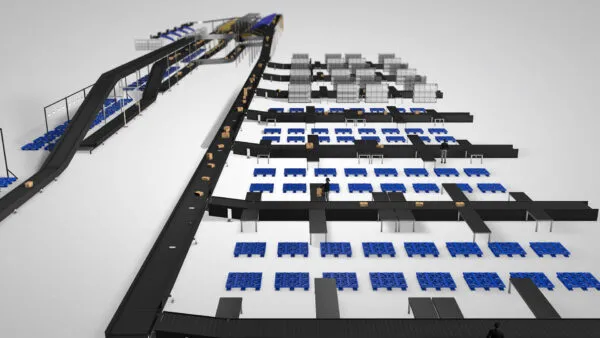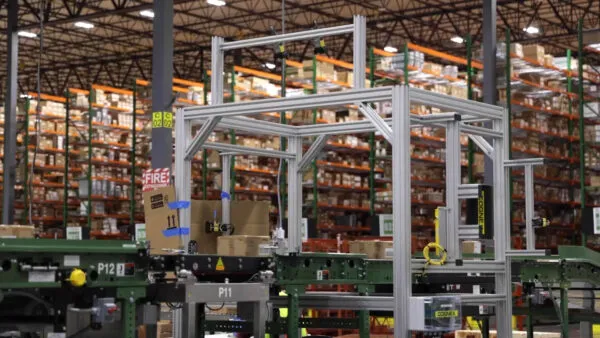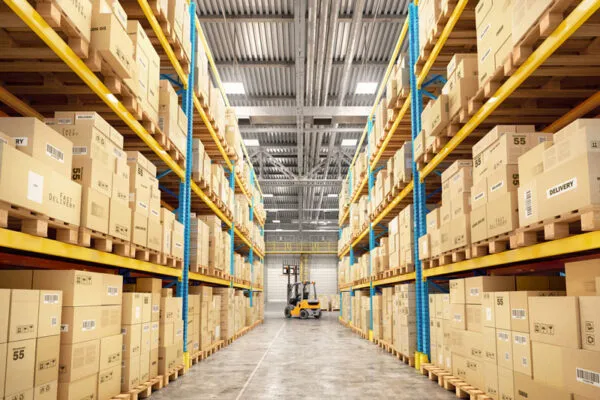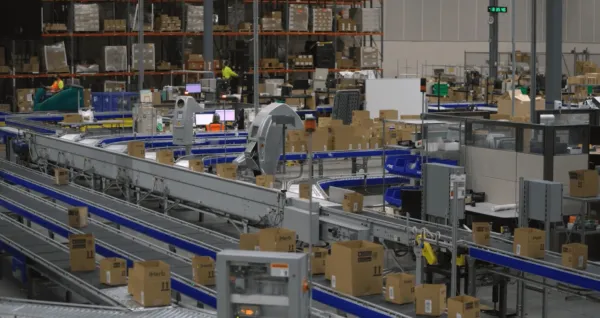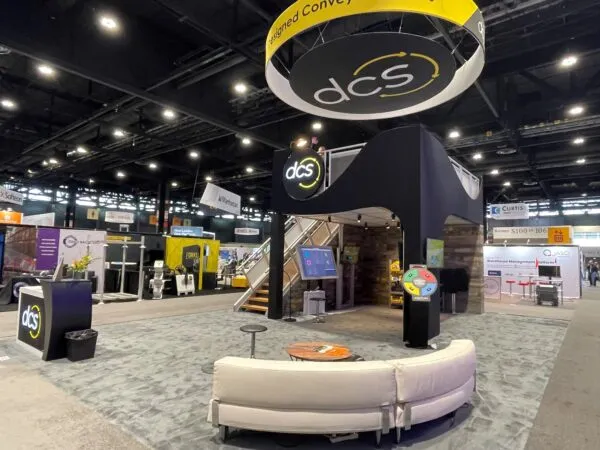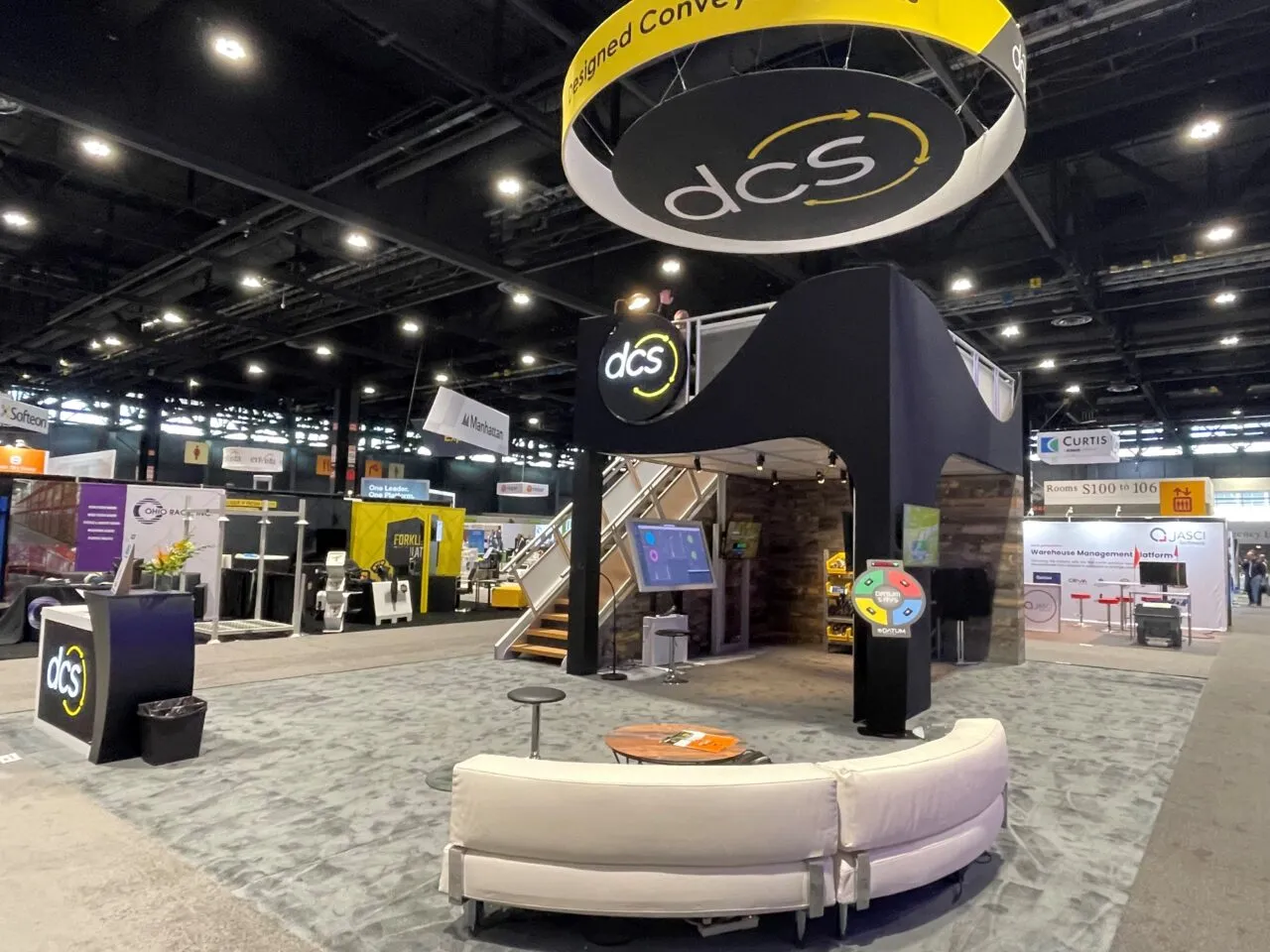DCS exhibited in several trade shows this year and attended many different conferences, including Parcel Forum, Pack Expo, CSCMP EDGE, and the MHI Annual Conference. The largest, of course, was ProMat 2023 which drew record attendance to its exhibits and educational conference at the end of March in Chicago. There, DCS debuted our new DATUM warehouse execution system (WES). This new, host software- and system-agnostic WES was a big draw for attendees at all the shows we participated in. They packed our exhibit to check out DATUM’s scalable, flexible, and reliable features.
While engaging with the WES, booth visitors also shared with our team the three operational challenges currently keeping them up at night. Interestingly, while the visitors to our exhibits represented a diverse range of company and facility sizes across a broad collection of industries, their issues were universal. These new warehouse operational challenges include:
- Continued inability to fully staff warehouse associate and material handler roles across all shifts.
- Ongoing difficulties associated with meeting the expectations of e-commerce customers, including excessive inventory volumes, shopper expectations for fast and free shipping, intense competition, and handling returns.
- Capacity limitations and lack of available space in existing facilities, compounded by an exceptionally tight real estate market.
These concerns match the supply chain challenges we’ve been observing — and solving for customers — throughout the past few years. Here’s how DCS has been helping operations managers get some well-deserved sleep.
Evaluating the Options for Improving Productivity Without Adding Headcount
With several years of hiring and retention struggles behind them, most operations have begun to look for ways to improve productivity without adding headcount. To help companies achieve this goal, DCS’ Supply Chain Consulting team analyzes an operation’s business data — including current workforce allocation, workflow processes, inventory velocities, order data, and more — to determine the optimal strategy to meet its unique needs.
Sometimes, the most expedient way to gain efficiency and throughput without adding more headcount is to implement one or more process improvements that streamline workflows and eliminate bottlenecks. Other times, adding automated solutions to a conventional, manual handling operation to handle the most tedious tasks while reallocating staffers to higher value jobs is the best approach.
Either way, DCS partners with each of our customers to provide comprehensive, end-to-end solutions tailored to match their business and operational goals. Because we are an independent, brand- and technology-agnostic systems integrator, DCS designs and engineers solutions that leverage a mix of equipment and automation from multiple original equipment manufacturers (OEMs).
Being independent allows us to always create the best possible solution for each aspect of a customer’s material handling and order fulfillment process. And, as evidenced at the shows we participated in, there are literally hundreds of different technologies and equipment solutions available. Not only can we help customers wade through their options to pinpoint the optimal choice, but with DATUM, we can now ensure that each of those systems works together seamlessly to streamline an operation.
E-Commerce Slowdown Provides Ideal Time to Address Operational Struggles
By all accounts, the massive uptick in demand for e-commerce that occurred during the pandemic has eased back to pre-COVID levels. Yet those levels were still pretty significant in 2019.
That means operations are still looking for better ways to handle the daily challenges of picking, packing, and shipping thousands of one- and two-line item orders while meeting customers’ expectations for fast, free shipping. They’re also coping with the need to stock a broad variety of inventory to accommodate shoppers’ shifting preferences and remain competitive in an intensely fierce battle for online consumer dollars. Plus, handling returns has become a huge challenge for many e-commerce and omni-channel operations.
The relative slowdown of e-commerce (compared to the past three years) is actually the perfect time for operations to address these challenges. With equipment lead times still being somewhat extended, it’s never too soon to start developing the automated solution that can help an e-commerce facility meet its service level agreements (SLAs) and productivity objectives. Now is a great time to pull in key operations personnel, evaluate the potential solutions, and work through project timeframes — particularly before the peak holiday shopping season kicks off.
Alternatives to Coping with Capacity Constraints
As major ports have worked through the backlog of inbound containers and routed those shipments to their destination warehouses, facilities have found themselves flooded with excess volumes of inventory. That’s causing tremendous capacity strains at many operations.
There are multiple ways to deal with an excess of inventory. Historically, companies might have leased additional square footage. However, available industrial space has become exceedingly scarce across the country.
The alternative is to find ways to maximize an existing operation’s space utilization. This can include reslotting, outsourcing part of (or all) fulfillment to a third-party logistics (3PL) solutions provider, or introducing automated storage and retrieval solutions (AS/RS) to increase storage density.
For operations already utilizing automation, investing in additional technologies to help increase capacity may be the optimal choice. In fact, at every show the DCS team had many conversations with attendees who were looking to build upon their existing systems to maximize their return on investment (ROI).
Simultaneously, however, these operations managers were looking for solutions partners who could help ensure their facilities would be able to continue operating during the upgrade process. Fortunately, DCS has extensive experience in managing projects just like this — from consulting to system design and integration, through compliance, go-live, and end-to-end customer support — to ensure minimal disruptions throughout a project.
Is your company facing any of these operational supply chain challenges? DCS can help you solve them with a custom engineered system that meets your needs. Connect with us.
Author: Abigail Milligan, Sales Executive, abigail@designedconveyor.com
